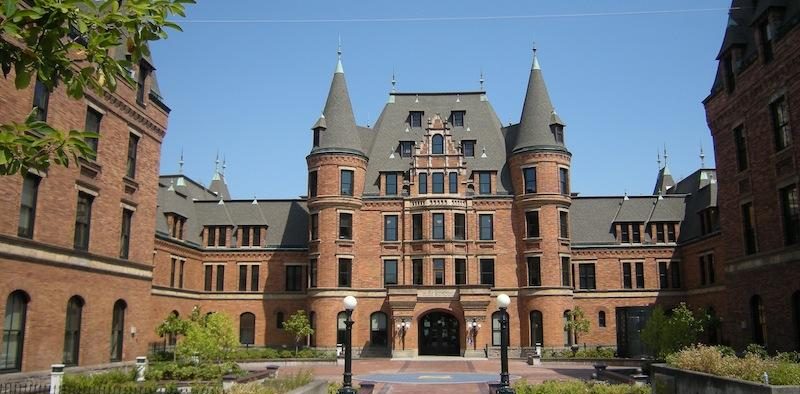Seattle Public Schools Levies Pass by Wide Margins

Tuesday’s vote count has passed levies to pay for Seattle Public Schools’ daily operations and construction projects.
The three-year Educational Programs and Operations levy (Proposition 1) and six-year Building Excellence Capital levy (Proposition 2) would cost $2.2 billion to property owners. The operations levy increased by 66 percent whereas capital levy won by 68 percent.
King County Elections tallied total 82,823 ballots Tuesday. In Seattle, there are 464,058 registered voters. More votes are expected to be counted over the coming days, as Tuesday was the deadline for mailing in ballots or putting them in official drop boxes.
The $1.4 billion capital levy which aims to raise almost twice the amount as an expiring levy would fund many projects such as new roofs, windows, security upgrades, athletic fields, and audio-visual systems throughout the district. The list also has a long-awaited new building for Rainier Beach High School, and new buildings or major remodels at seven other schools.
The first-year levy rate is $0.90 per $1,000 of assessed property value. That’s $632 in 2020 for a home valued at $700,000. The annual amount would decrease over the levy’slife.
The operations levy could gather up to $815 million if lawmakers roll back limits on how much school districts can collect through local property taxes. If not, the 2020 collection rate will default to Seattle’s legal limit of $0.53 instead of the $1.05 in the levy. A little above half the total levy would be spent on special education, and the rest on salaries, transportation and other programs beyond what the state allocates.
The legislature in 2017 offset an increase in the statewide property tax for K-12 schools by slashing how much districts can collect with local tax rates in an attempt to address the landmark McCleary v. Washington lawsuit.
However, the levies provide only partial relief to school-district officials, who are forecasting several years of financial shortfall, by their accounting, for the state’s largest school district because of the state’s cap on its local levy collection. Even at the current legal limit for collection for 2020 ($0.53), the district says it will have to make $40 million in cuts next school year, which would likely include layoffs, a reduced budget for central administrators and reduced hours for employees such as librarians.
“The passage of the levy is great news. That said, our work is not done,” said Stephen Nielsen, the district’s deputy superintendent. He says the district is expecting for help from the Legislature, such as an infusion of money for special-education costs.
Seattle schools Superintendent Denise Juneau was unavailable for comment as he was on vacation out of the country.
Historically, education levies have got broad support from voters in Seattle. The last levy failed in 1996.
Schools First, the campaign in support of the levies, could raise $237,365, and a fifth of its money has come from Seattle’s educators’ union. Other contributors were Amazon ($25,000) and Microsoft. The district’s embattled school-bus contractor, First Student, gave $3,000.
The district also spent $25000 for communication about levies. That included promoted posts on social media and advertisements. There is also a complaint against the district with the Washington Public Disclosure Commission. It alleges that a district email sent to families about the levies contained language that appeared to advocate for voter support of the levy, a violation of state law.
Opponents of the levies seemed powerless. The campaign created against the capital levy raised only about $1,200 — but say the district should be held accountable for how it spends levy funds.
Tracey Lake, a retired stockbroker who wrote the opposition statement for the capital levy, said she along with other opponents would like to see more efficient planning and spending for construction projects. She went on questioning the district’s plan to use levy funds in order to pay off $10 million in outstanding debt on its headquarters in Sodo.
Renton-
In Renton, the suspense still remains regarding the election’s outcome.
Proposition 2, a schools operations levy, was passed on Tuesday with a clear majority of about 60 percent votes.
But for Proposition 1, a bond measure to build and renovate schools, passage requires 60 percent approval and a turnout of at least 18,578 voters, but Tuesday’s tally had the majority by 60.11 percent, and the turnout remains at 11,677 voters.




